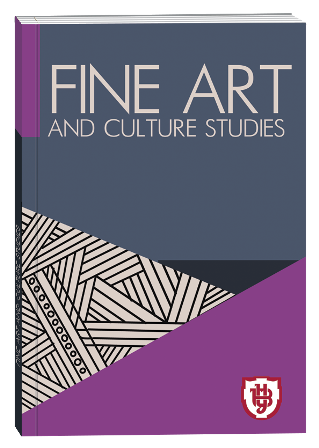UKRAINIAN CULTURE IN THE CONTEXT OF STATE ADMINISTRATION AND PRIORITIES OF THE EDUCATIONAL AND HUMANITARIAN SPHERE
DOI:
https://doi.org/10.32782/facs-2022-6-11Keywords:
Ukraine, educational and humanitarian sphere, management, competencies, values, cultural containment, modernizationAbstract
At the current stage of the development of Ukrainian society, the importance of culture and its presence in the actions of the government and individual citizens is growing. The priorities of the educational and humanitarian sphere have largely determined the current socio-cultural changes and program the further prospects of the formation of Ukraine as a democratic, legal state. There is a trend towards the synthesis of Western civilization elements and traditional forms of cultural consciousness and mentality of Ukrainians. In this context, the study of the role and significance of cultural values in the formation of the state administration latest system and the analysis of the main trends of the humanitarian component in the educational processes of Ukraine and the world are relevant. The aim of the article is a sociocultural analysis of the management features through the value paradigm and the main trends in the development of the educational and humanitarian sphere. Scientific novelty. Relying on the methodological apparatus of multifactorial analysis and moral assessment of social changes, management is studied not only as a type of direct action, but primarily as a multifaceted cultural phenomenon in which philosophical contents, spiritual values, forms of specific regulatory documents, tradition and innovation in determining the dynamics of development are organically combined society, the action of cultural archetypes and moral motives. The opinion is substantiated that human capital acquires decisive importance in the modern world, which becomes the basis of the country’s successful development and the source of adequate responses to the threats caused by Russian aggression. It was determined that when solving the problems of the development of the educational and humanitarian sphere, the efforts of the state government, local self-government and civil society should be combined. The recommendations of the European Charter on Self-Government can be decisive for an effective movement, which is especially relevant in the context of the integration of Ukraine into the European cultural space and the development of cooperation with the socio-economic structures of developed Western democracies. In the conclusion, it is noted that in the new conditions of the world and Ukraine development, the humanitarian component of education is being not only a process of assimilation of a certain set of knowledge through systematic training, but also a multifaceted system of personal attachment to a certain way of life, cultural traditions and values of many generations, which created the cultural heritage of people. At the same time, the educational system is an effective tool for influencing public attitudes and a means of shaping the dynamics of socio-cultural changes. In the developed countries, the high qualification of engineering and technical workers involves the mastery of high-quality professional skills against the background of the simultaneous acquisition of general cultural knowledge and competencies. New technologies and an innovative type of thinking are formed on the basis of the peculiarities of the mentality and cultural traditions of society. Today, the general competencies of the state standards of higher education of Ukraine do not have a corresponding state list of educational components that would allow students to acquire these competencies. In their actions, bodies of state power, local self-government and civil society should be guided by the recommendations of the European Charter on Self-Government, which provides for discussion and decision-making at the level of those layers of society that will feel the positive or negative consequences of this decision to the greatest extent.
References
Андрущенко В. П. Роздуми про освіту . Київ : Знання України, 2005.
Головне управління статистики у м. Києві. Заклади вищої освіти (1995–2019). URL: www.kiev.ukrstat.gov.ua/p.php3
Горбатенко В. Стратегія модернізації суспільства. Україна і світ на зламі тисячоліть. К., 1999.
Заклади вищої освіти. Статистичні дані. URL: https://www.ukrstat.-gov.ua/operativ/opera-tiv2005/osv_rik/osv_u/vuz_u.html
Кремінь В. Г. Освіта і наука в Україні – інноваційні аспекти. Стратегія. Київ : Грамота, 2005. 448 с.
Орлова Т. Історія сучасного світу. К., 2006.
Україна. Національний звіт з людського розвитку 2001. Програма Розвитку Організації Об’єднаних Націй. К., 2001.
Україні пропонують стратегію культурного стримування проти російської пропаганди. URL: https://ukrainian.voanews.com/a/6591106.html







